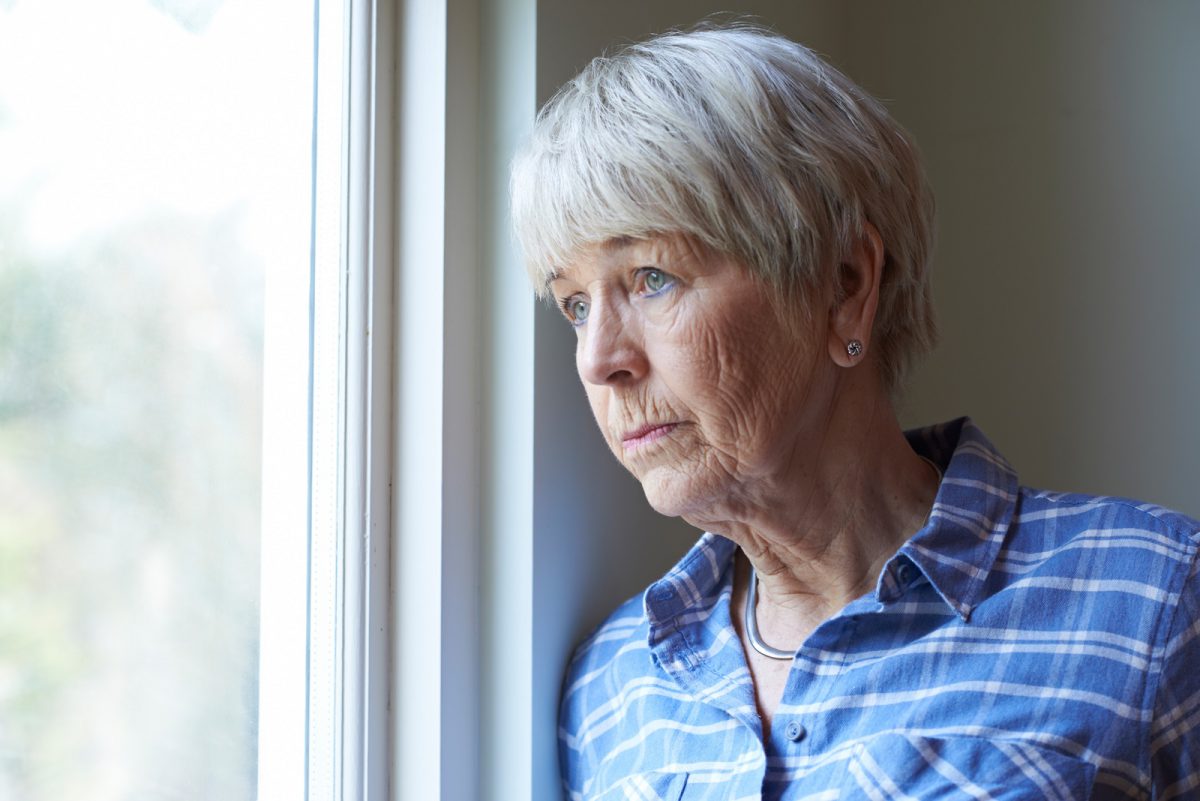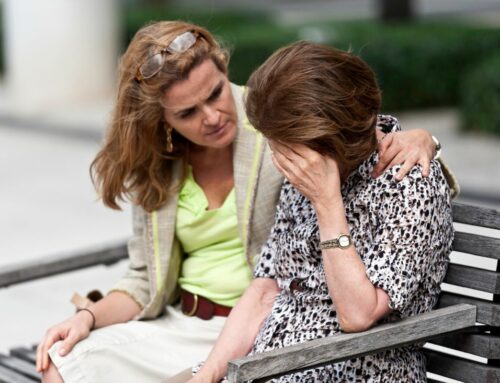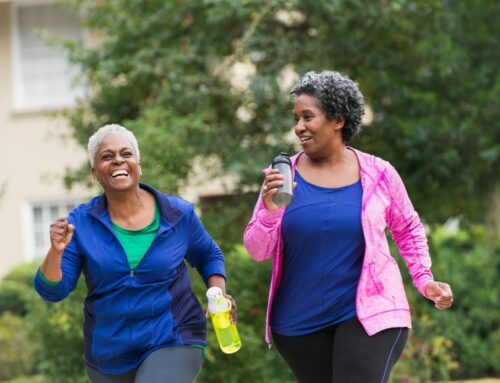Americans are living longer, healthier and more productive lives these days. With more people turning age 65 than ever before in history, what was previously known as the “Age Wave” is now being referred to as the “Silver Tsunami.” In fact, the fastest-growing demographic in America is people age 85 and older. In honor of aging well with dignity and independence, we now celebrate Older Americans Month in May.
While a longer life expectancy is certainly something to celebrate, it is not without its challenges. According to the Administration on Aging, approximately one-third of people age 65 and older live alone, and an estimated 40% of older adults struggle with daily living activities associated with independent living. When older people are limited physically and socially, many become isolated and vulnerable to abuse and mistreatment.
[youtube id=”q9z4mertWqc”]
Over the past decade, there has been a sharp increase in the number of reported cases of elder abuse. Recent estimates suggest that one in eight older Americans are mistreated each year, typically by a family member or someone considered trustworthy. The reported prevalence of abuse is believed to be the ‘tip of the iceberg,’ implying the problem is far worse.
The Golden Years should be a time in which people can enjoy life and age in place with dignity. No one should live in fear of their safety as a result of ongoing abusive situations. Do not let a possible victim suffer in silence. Every year, June 15 is honored as International Elder Abuse Awareness and Prevention Day. Elder abuse and neglect are significant problems, and education is one of the first steps to help put an end to these horrible injustices.
Senior Abuse Awareness
The follow information is provided to create awareness and urge action to prevent and put an end to elder abuse. The term elder abuse is often linked with physical abuse is often linked with physical punishment and unwanted sexual contact; however, there are many forms of abuse:
- Abuse is often disguised by what might appear to be a kind gesture, such as getting the mail, when instead they are actually attempting to intercept a check or credit card.
- Abuse often takes place behind closed doors where victims are tormented by loud, abusive language, degrading comments and threats.
- Abuse occurs when family neglects a loved one’s basic needs (e.e., hygiene, safety, nourishment) or and older adult neglects his or her own needs.
- Abuse often entails acts of deception and coercion in which money and material items are taken without benefit to the older adult.
Types of Elder Abuse and Mistreatment
In most cases of abuse and mistreatment, the abuser typically has power and control over the victim. In certain cases, threats of physical or sexual abuse are acted out, and victims find themselves helpless. In other cases, the victims may experience verbal and emotional abuse. They may be yelled at, told they are worthless, or hear constant threats of “I’ll put you on the street” or “…move you to a nursing home.” This causes the victim to feel hopeless. In yet other cases, coercion and deceit lead to financial abuse. The victim is exploited and loses their money and material possessions, which may lead to a life of marginal existence.
Self-neglect occurs in an estimated 50% of the cases of elder abuse and mistreatment. These older adults are unable to care for themselves properly and are living in unsanitary and unsafe environments where medical needs and daily living activities are not adequately addressed. Neglect can occur when the people responsible for caring for their aging family members fail to provide proper care, whether due to a lack of coping skills, oversight or intentional behavior.
Types of Abuse & Signs/Symptoms
Neglect – Failure to care for someone unable or unwilling to care for self, whether intentional or unintentional.
Self-Neglect – Behaviors of an older person that threaten his/her own health or safety.
Signs/Symptoms – Poor hygiene, filthy living conditions, apparent lack of basic medical care, soiled clothing, bedsores, dehydration, malnourishment, etc.
Physical – Use of force resulting in bodily injury.
Signs/Symptoms – Unexplained bruises, cuts, swelling, broken bones, marks on the skin, burns, etc.
Sexual – Unwanted or threatened sexual contact.
Signs/Symptoms – Submissiveness, avoidance of eye contact, shame, jumpy or twitch if touched.
Emotional – Use of pressure, intimidation, harassment, isolation, etc. which leads to distress.
Signs/Symptoms – Hesitation to speak openly, denial of a problem(s), fear, apparent depression or guilt, etc.
Financial or Material Exploitation – Use of funds or personal property through acts of coercion, deception or theft without benefit to the older adult
Signs/Symptoms – Unexplained transfers or expenses, overcharging for goods/services, missing or unexplained use of checks, cash, credit, property, etc.
Situations That May Increase Risk
These situations are potential red flags that should be taken seriously and are worthy of suspicion:
- New friends – People suddenly appear to have taken a great interest in an older person.
- Constant companion – Someone is always present, hovering and refusing to leave an older adult alone with others.
- Isolation – Older adults living alone are susceptible to abuse without anyone being around to notice concerns and to intervene.
- Family stressors – The loss of a job, mounting debt, etc. can cause children, grandchildren and others to take an unreasonable sense of entitlement.
- Empty promises – Older adults may fall victim to get-rich-quick scams. Family member may fail to repay “borrowed” money.
If You Suspect Elder Abuse or Mistreatment
“Elder abuse is not a family matter that is ‘none of my business,’” said Dr. Catherine. “It is horrific acts against older adults who often have more concern about the consequences for the abuser than they do for their own safety. If you suspect an older person is experiencing any of the signs and symptoms listed above, turn it over to the professionals and let them investigate the situation. You can file a report with your local Adult Protective Services. Visit www.ElderCare.gov or call 800-677-1116 to find the number for your area location. As the saying goes, ‘better safe than sorry.’”
Legal / Moral Obligations
Some states mandate professionals, social service workers, clergy and others to report suspected abuse; other states have laws requiring everyone to report suspected elder abuse. People who fail to report it when required may be subject to punishment. Elder abuse is not a family matter that is “none of my business”. Instead, it is a horrific act against an adult who often have more concern for the abuser than they do for their own safety.
Here’s a link to the Florida Statutes.
Reporting Suspected Abuse
The following organizations can provide a number to call in your local area to make a report of suspected abuse. When in question, as the saying goes, “Better SAFE than sorry”.
- Elder Care Locator – Call (800) 677-1116 for your state or local phone number for Adult Protective Services or visit their website at www.ElderCare.gov.
- National Adult Protective Services Association – The NAPSA website is www.APSNetwork.org which has a list of agencies and phone numbers listed by state.
- International Network for the Prevention of Elder Abuse – www.INPEA.net
Additional Resources
To learn more about elder abuse prevention the following websites offer helpful and insightful information.

Compassionate Home Care Partners of Polk County Florida offers a complete continuum of home healthcare services, similar to the care and support often provided by family members. Services include non-medical care, companionship, personal care* and medical services*. Our flexible care plans are tailored to fit our clients’ specific needs and budgets. To learn more about Compassionate Home Care Partners and get answers to your question call us at (863) 271-7776.






